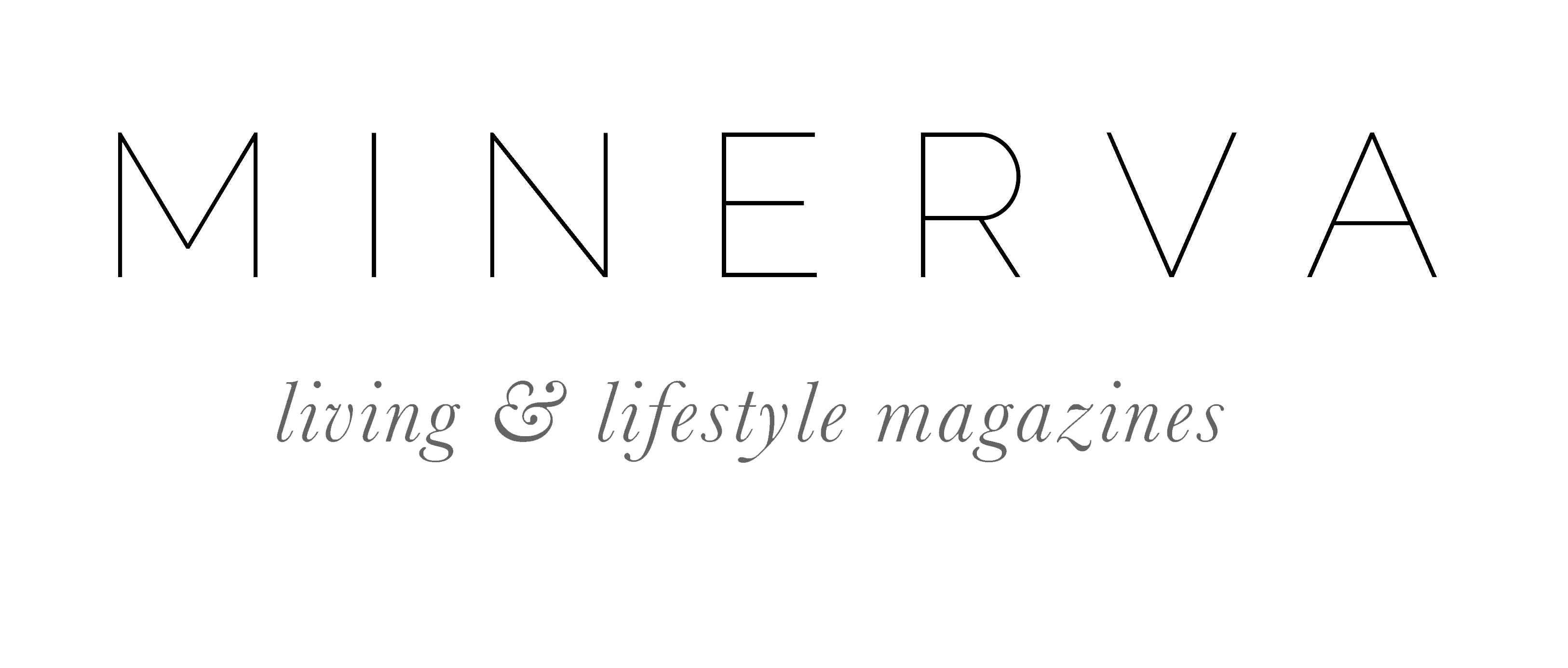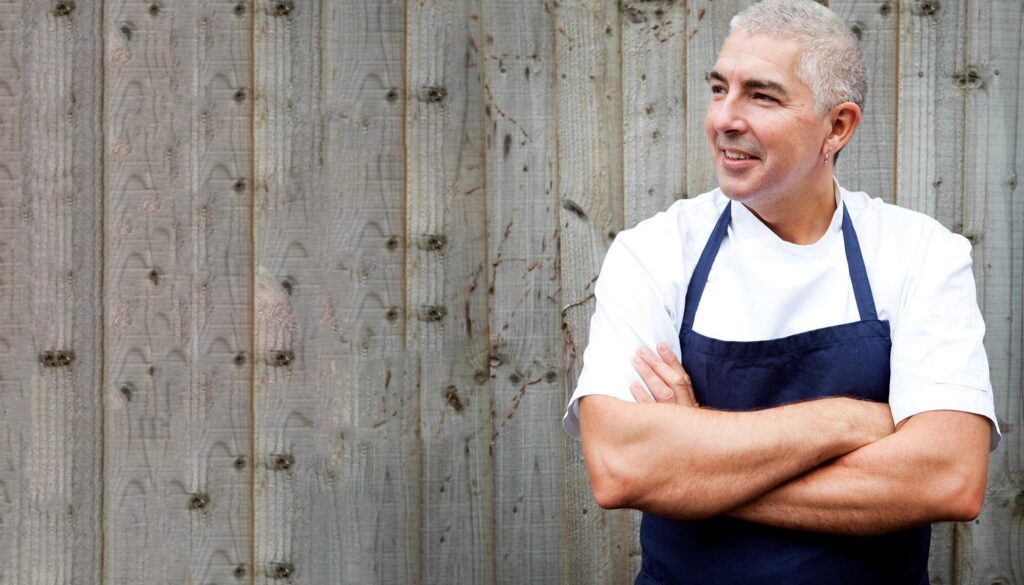INTERVIEW: We chat to the ‘Chef’s Chef’, David Everitt-Matthias
David Everitt-Matthias has been the co-owner and head chef of Michelin starred Le Champignon Sauvage in Cheltenham since 1987. Sally Thomson caught up with him to discuss foraging, James Martin’s Saturday Morning TV, lockdown and winter flavours…
When did you start cooking?
1978. It was when I left school. I had put in papers to join the army catering corps and I also had an interview at the Four Seasons which was in Mayfair which in those days was called the Inn on the Park. So, I decided to go that way to the Inn on the Park and started there as a first-year apprentice.
Did you find it quite challenging?
Oh yeah, it was great. In those days it was very organised. There were about ninety chefs and we each had our place. Because we were junior it was the whole ‘Don’t talk unless you are spoken to’ so it was just head down and get on with your job.
So it was a bit like being in the army?
It was. It was very regimented, and I think that’s not necessarily a bad thing.
I think there’s a certain lack of it in so many aspects of life these days. You need to do it by the book – to be good at it almost.
Yes. Then you can throw the rule book away afterwards. Once you’ve got the training then you can start playing.
It is fantastic to be able to give people the opportunity to learn a very good skill
It is a problem, the de-skilling of our industry and many other industries. Lots of people are getting their produce already boned from the butchers, already cut into portions, and so don’t have the opportunity to work on whole animals, or semi-whole animals. And it’s the same with fish. A lot of fish gets prepped up and doesn’t arrive whole. So that’s gone out the window for a lot of chefs in their training.
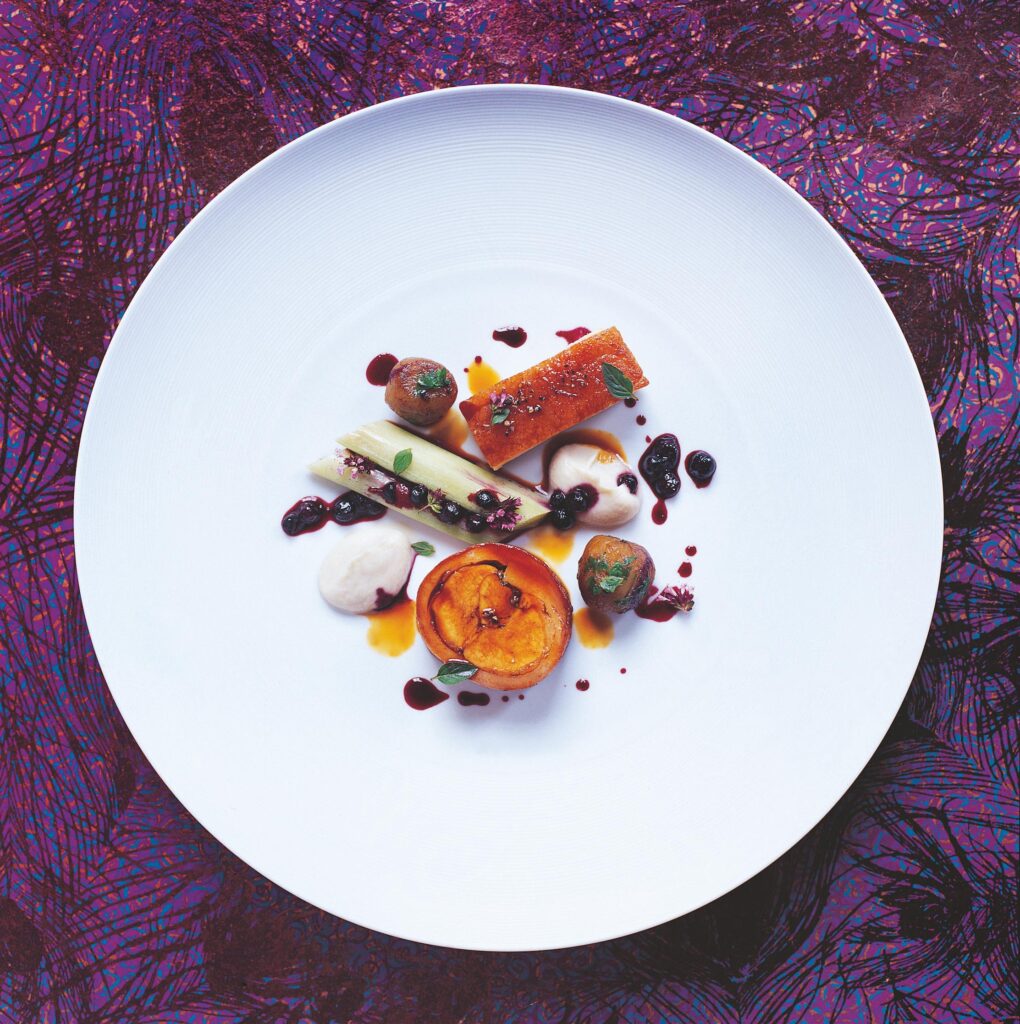
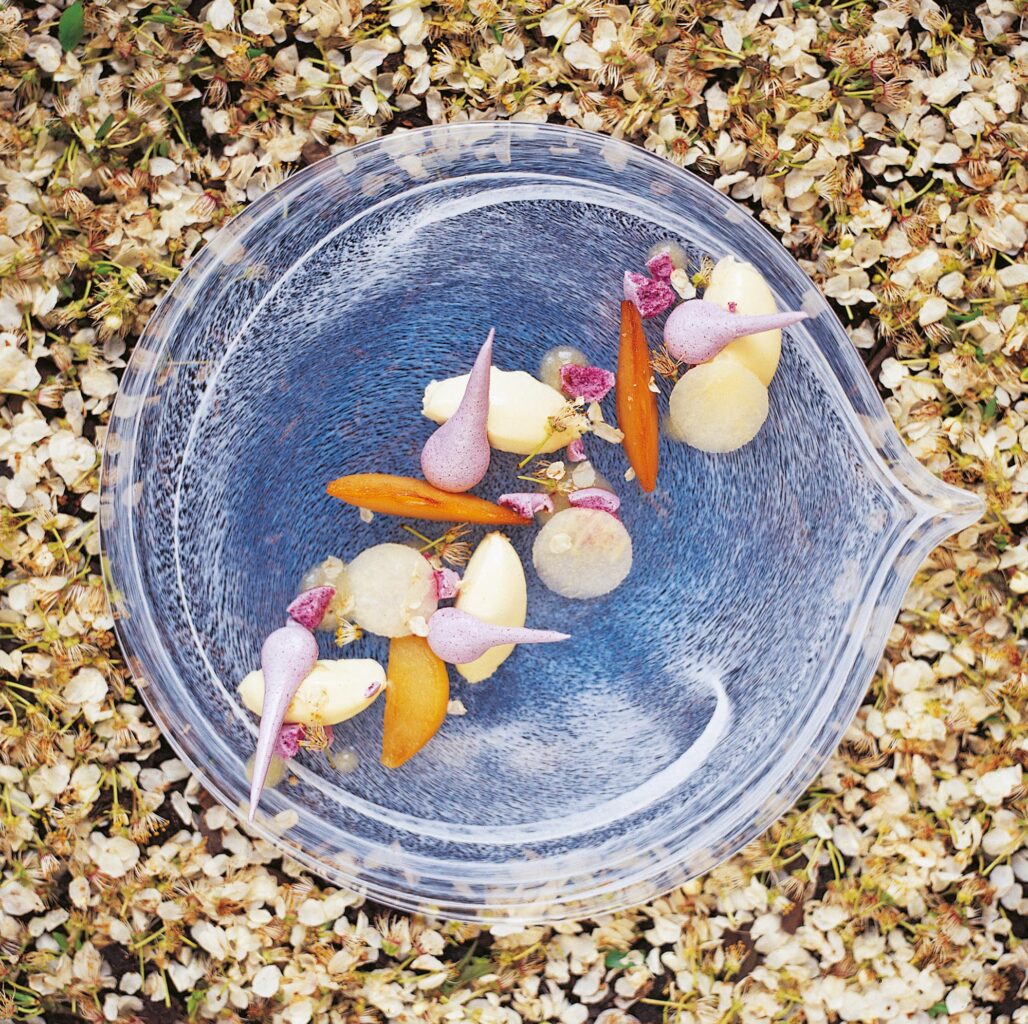
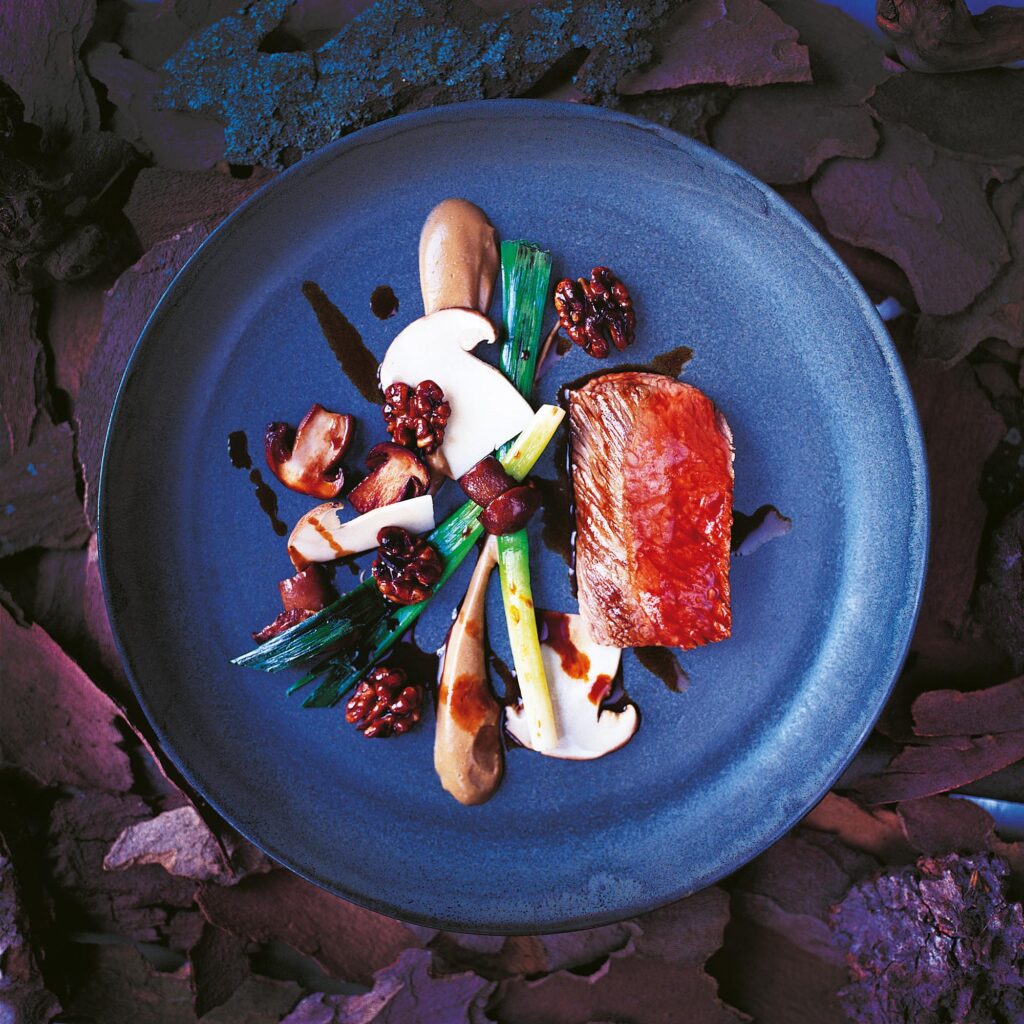
I think that’s essential with most things in life; to understand the basics before you can move on with it.
I totally agree. Head chefs are getting younger and younger now and they are supposed to be able to teach people under them. How can they do that when they haven’t learnt the basic skills themselves?
From your point of view, when you look to employ staff, what is the criteria that you use to find the right person?
First of all its whether they are going to fit into kitchen and whether they are going to get on with everybody else. Then we look at if they are enthusiastic and do they eat out. That’s quite an important one to me. A chef that doesn’t dine out and enjoy food won’t put as much passion into what they are doing. But really, as long as I have enthusiasm and some skill then we can train them up. We’ve had some wonderful chefs that have been with me for two or three years and they’ve all left and gone on to achieve good things for themselves. They have Michelin stars here there and everywhere and are head chefs of places. I’m quite proud of them all.
Lots of people I speak to seem to hint at a sort of misunderstanding from a lot of abilities that people might have but that they just don’t seem to want to use them at the moment, which I find quietly disturbing. you wonder how things are going to move forward. It seems like a lethargy which has crept in, which is quite sad.
I think it’s lockdown. You’ve had two years of not working basically for a lot of people. The trade has moved on quite a lot. Before lockdown we went to a four-day week so that everybody could have more time off and a better work-life balance and that seems to be the norm now. Which I think is great.
That is really wonderful! You’ve been doing this quite a long time now. When did you open the restaurant you are in now?
1986? This is our 37th year.
You wouldn’t change it for the world I can image?
No. I still love what I’m doing. I love the impact we have had on a lot of the people who have worked for with us, and the impact they have had on us, to help us grow. It’s just been very enjoyable.
What is your proudest achievement to date?
I suppose a lot of my staff achieving greatness. If we’re looking at achievements by the restaurant, then probably the Catey Chef of the Year and a Michelin star. The Good Food Guide Chef of the Year was a great honour because it is through the public and the finishing touch by the editor so that’s always nice. I was also lucky enough to get an honorary degree in Philosophy from Gloucester University through what we had done in the industry and helping people.
I saw you recently on TV with James Martin…
I was very nervous! I don’t know why I was so nervous; I’ve done three with James now, and two of them were live which I wasn’t nervous for at all. But this one, I wonder whether lockdown had something to do with it, you know, socialising and all that. But I settled into it once it started going and I got a bit more confident with it as the programme went on.
Would you do it again?
Yes, but only with James. I’m not a TV chef and I don’t want to be known as one. I’m a chef, I’m in the kitchen and I cook. But working with James I quite like because he’s such a great character and he’s so professional at what he does. I thinks he is in a different league when it comes to presentation of TV programmes, and the fact that he gets on and does he own mise en place prep for his show I think is a testament where other people will get others to do it for them.
At this time of year, with us heading into spring, what do you like to cook?
It does always depend how bad the winter has been. Shoots are starting to come through if it’s been a little milder, and things like wild garlic I have noticed has been coming through earlier and earlier in the year. Around this season, you are looking at chestnuts and Boletus mushrooms. They are around from November and when we forage them there are usually acorns around and we’ll pick those up too. And then as we go into spring, we get the wild garlic and the lovely shoots starting to appear such as Pennywort. Of course, there is also game which finishes around the end of January. I love venison and partridge and because they are so lean, they give you a chance to put them with something a little bit fatty, like maybe belly of pork or some sort of little kofta to go with it to help with the pure leanness of the meat.
You’ve mentioned picking, do you go out and pick your own?
Yes. Not all our own though because we just don’t have the time. My wife brings stuff back when she walks our dogs. But the wild garlic berries we will salt and then pickle, and we’ll keep those for the winter. So, they’ll be done in the spring and kept for the winter so that they will add a little bit of acidity to the dish and help cut through the slightly heartier dishes that are available in the winter/early spring.
Are you able to describe your style of cooking?
I would say it is masculine; bold flavours that we’ve sort of lightened up now, but they still have that real punch of flavour that we are known for.
You’ve erred over the years to being slightly French in cuisine, haven’t you?
Yes. I was taught to cook French food, so I suppose we’re sort of French Modern British. Other little influences come in like Japanese ingredients and Indian and Moroccan spices that we use for different effects. And things like the acorns I mentioned, we’ll do an acorn panacotta and make an espresso granita to go on top of that and a mascarpone foam. Basically, an acorn tiramisu.
Do you have a favourite piece of kit in your kitchen that you couldn’t live without? I know you would probably say a knife.
Well, yes that would probably be it. I have some Japanese knives that are great. A Thermomix I suppose. It’s a blender that cooks that is good for several jobs.
Is there anywhere in particular that you have eaten that you would love to go back to?
Some of my favourites are Chez Bruce, with Bruce Poole in London, Phil Howard at Elystan Street in London. Tom Aikens. Ledbury is another good restaurant. There are so many!
